
|
Authors | Institution |
| Chien-Kuang Chen | Chang Gung Memorial Hospital - Department of Emergency Medicine, Taiwan |
 |
|
||||||
| Simulation-based Competency Assessment in Crisis Resource Management (CRM): A Framework for EM resident evaluation |
The EM milestones consist of 23 core competencies in EM practice. Since non-technical skills are more difficult to evaluate objectively, we introduce high-fidelity mannequins to evaluate the performance of ED residents in ACGME core competencies of EM milestones.
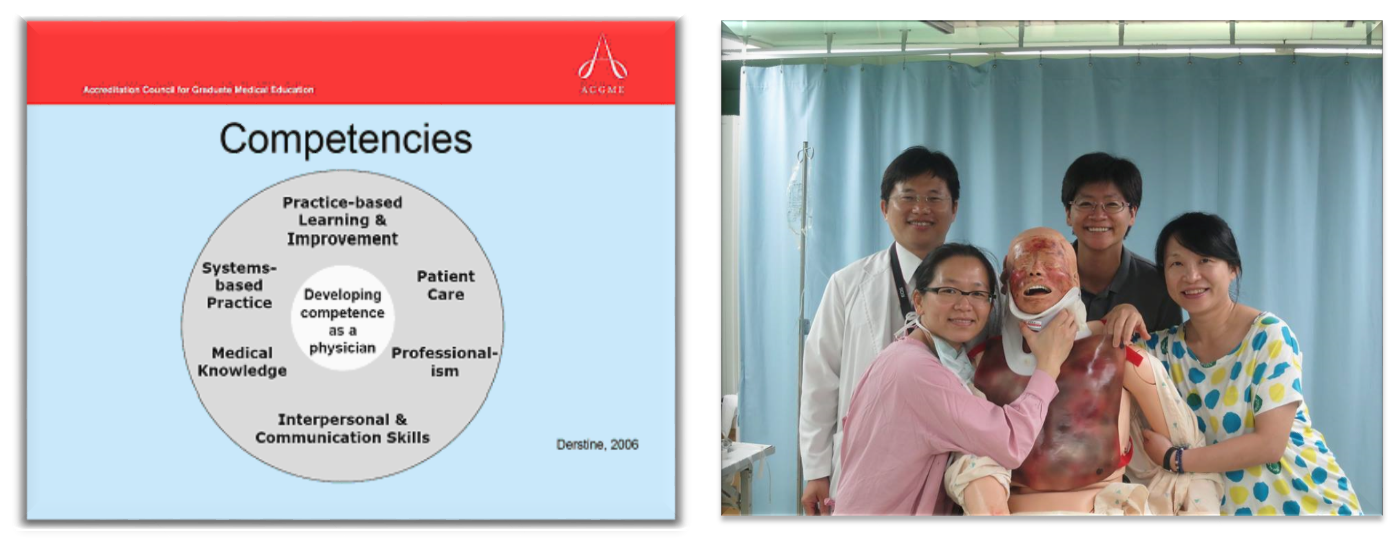
The Emergency Department of Chang Gung Memorial Hospital employs high-fidelity mannequins to accurately judge ED residents by using " scenarios" during board exams. 24 persons participated resident exams in 2013 summer, 2013 winter, 2014 summer, and 2014 winter.
Each exam contains 2 OSCE scenarios. Each scenario takes 10 minutes, and is evaluated by checklist. We divide the checklist into 4 domain; primary assessment, diagnostic actions, therapeutic actions, and communication. Statistical difference between 4 components of the EM resident levels is performed.
Feedback is taken 2 weeks later after the exam.
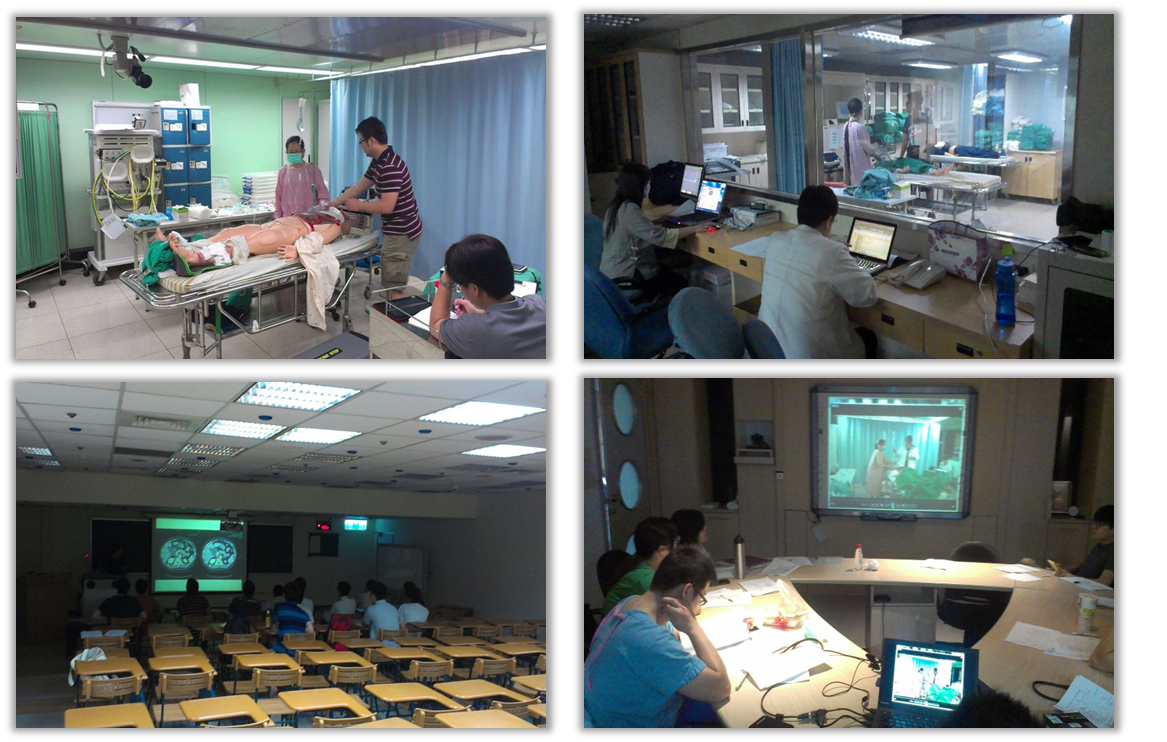
Scenario(major trauma)
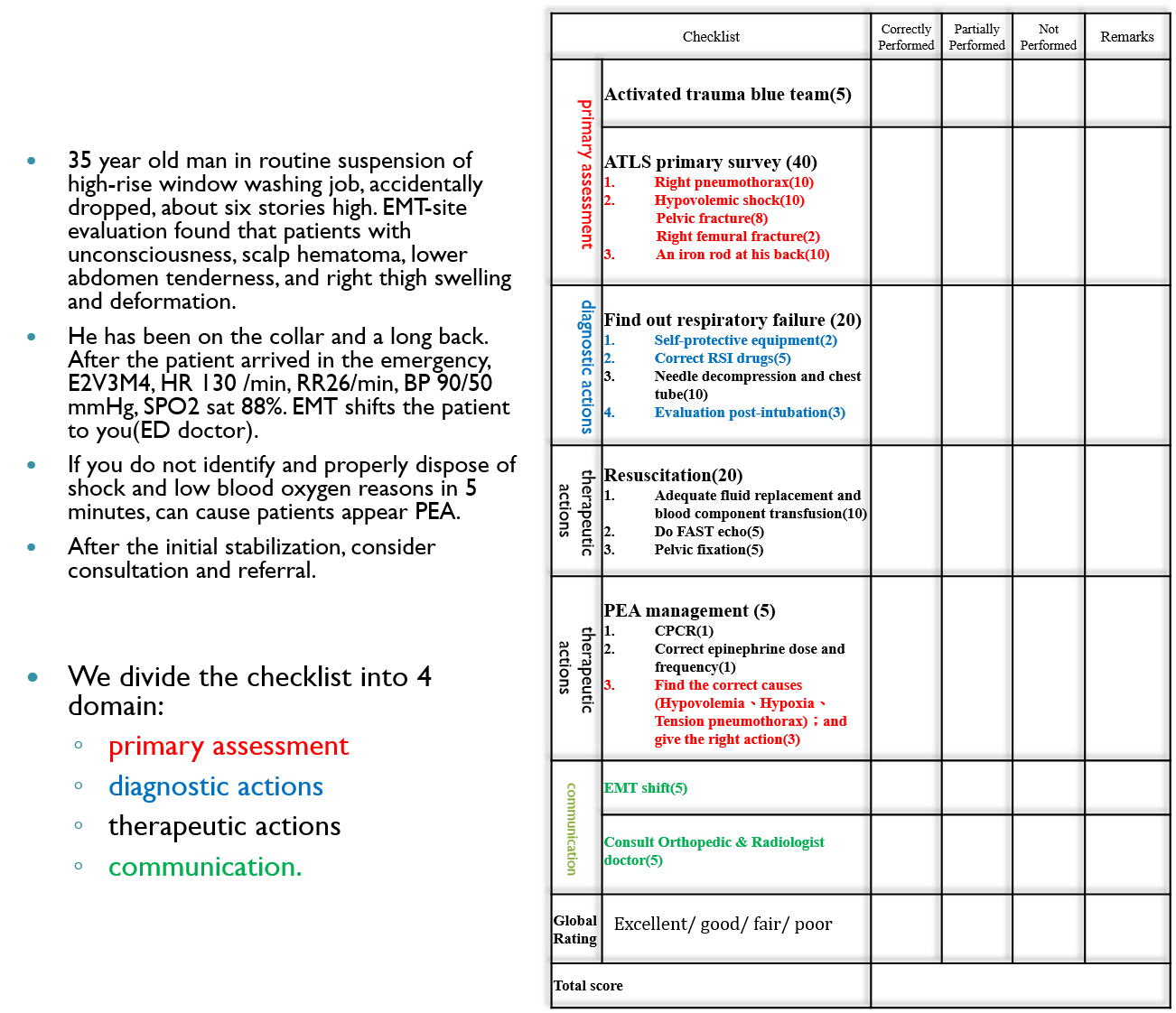
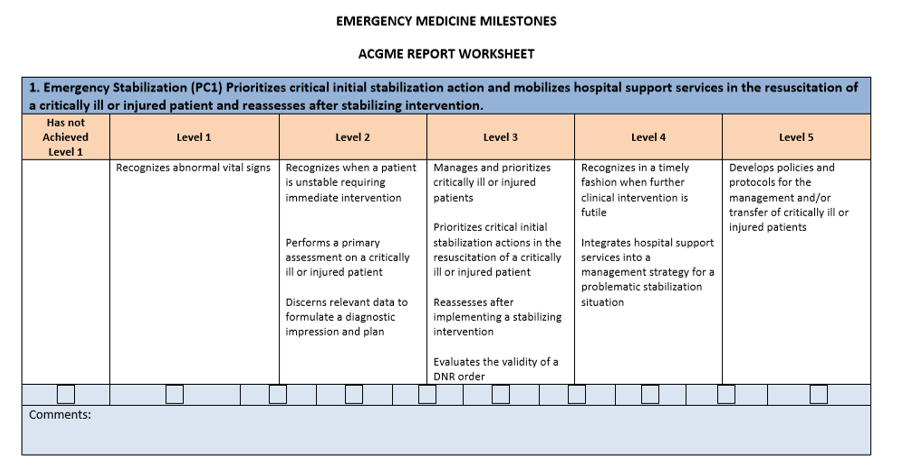
Interrater reliability for the scores was good but varied between scenarios.
- Crisis Resource Management (CRM) : Resp. emergency/ CV emergency/ Major trauma/ Neuro emergency
- Interrater reliability : Resp.(0.9) > CV(0.84) > Trauma(0.82) > Neuro(0.80)
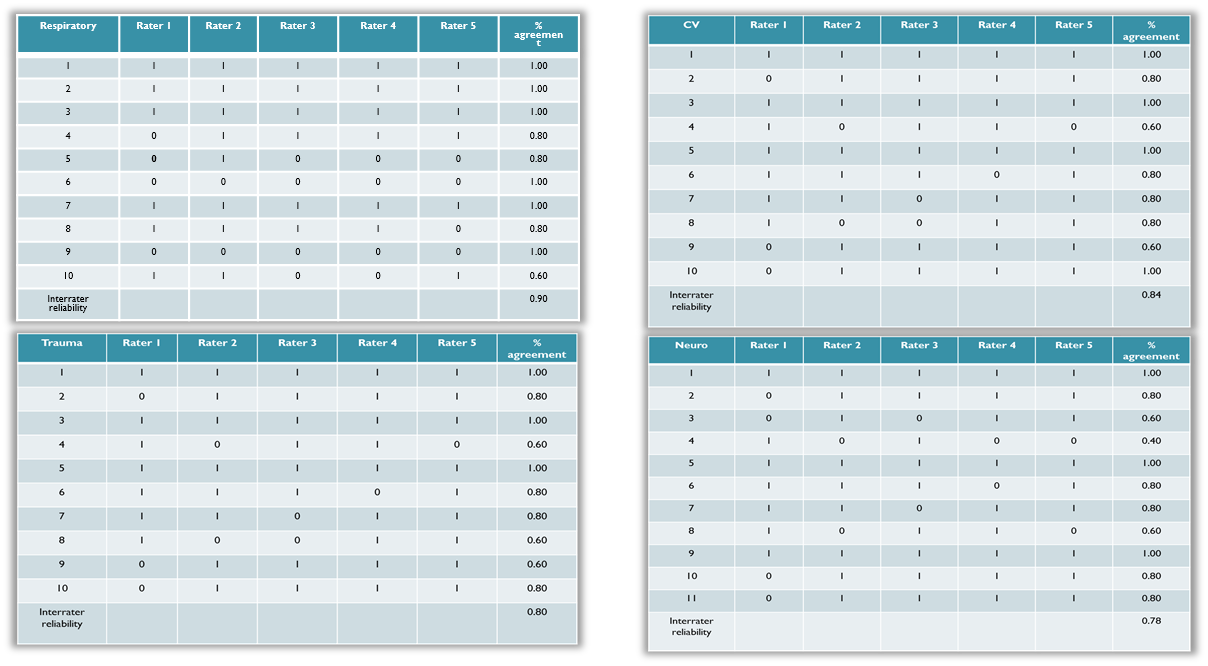
We found a statistically significant difference in performance across 4 components of the EM resident levels. Senior residents outperformed in all scenarios than junior residents, especially in therapeutic actions and communication.Our study supports the use of CRM ability in individual learners over the course of residency training in EM. Simulation shows more objective, economic, and efficient.
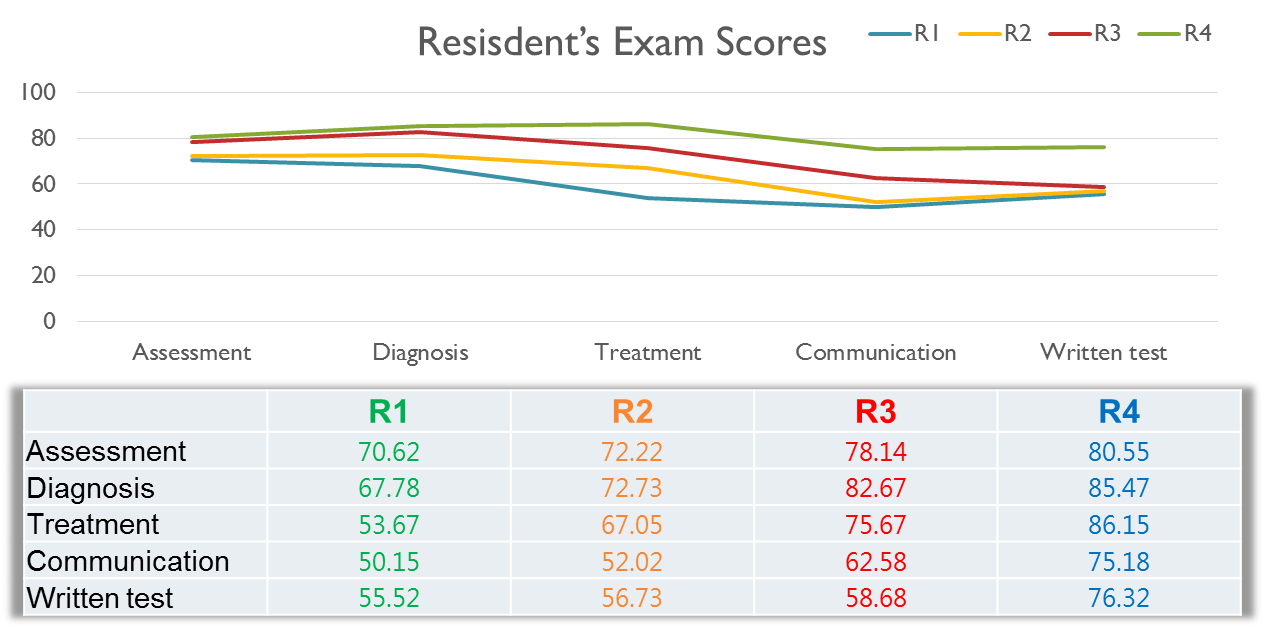
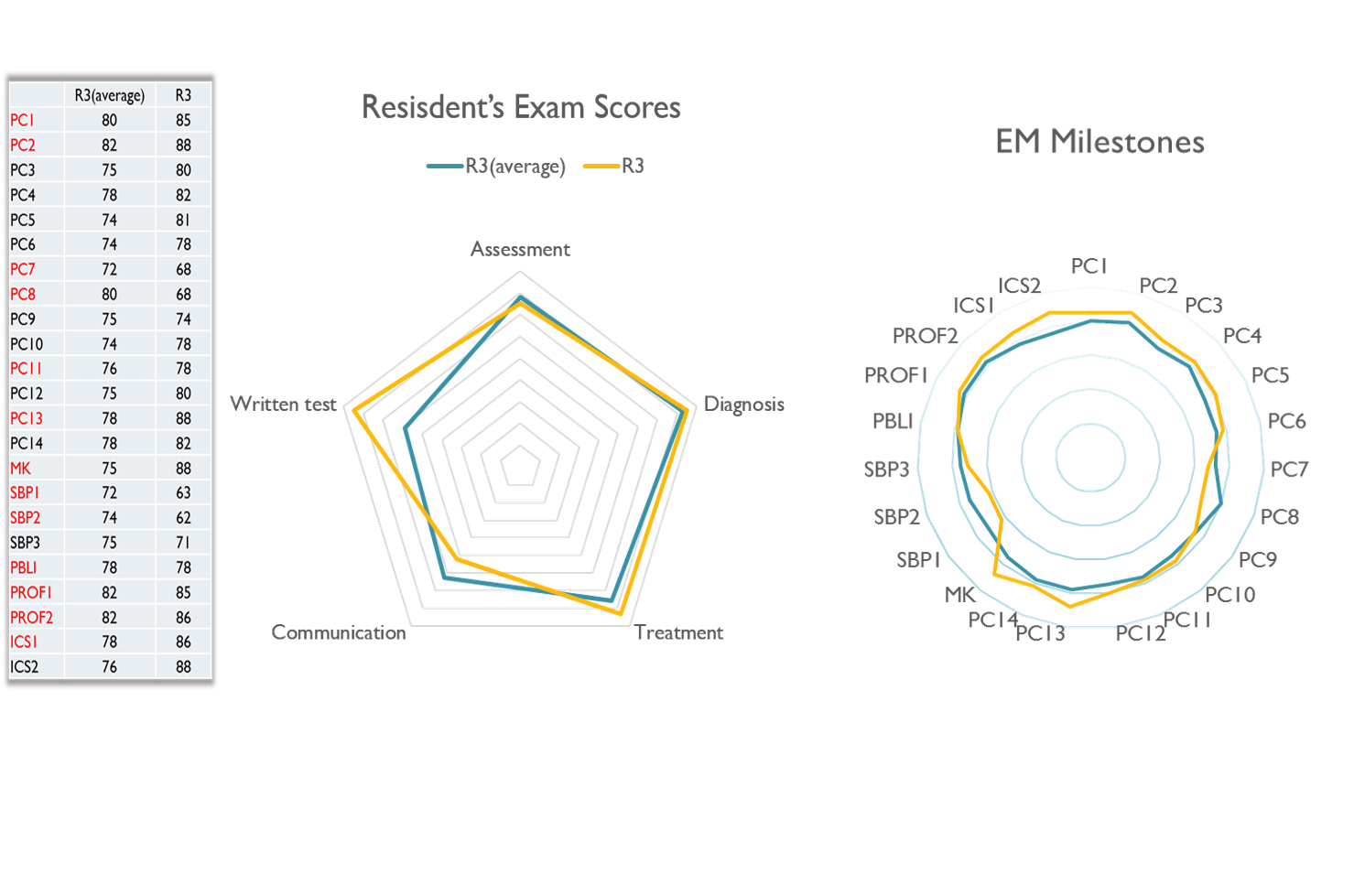
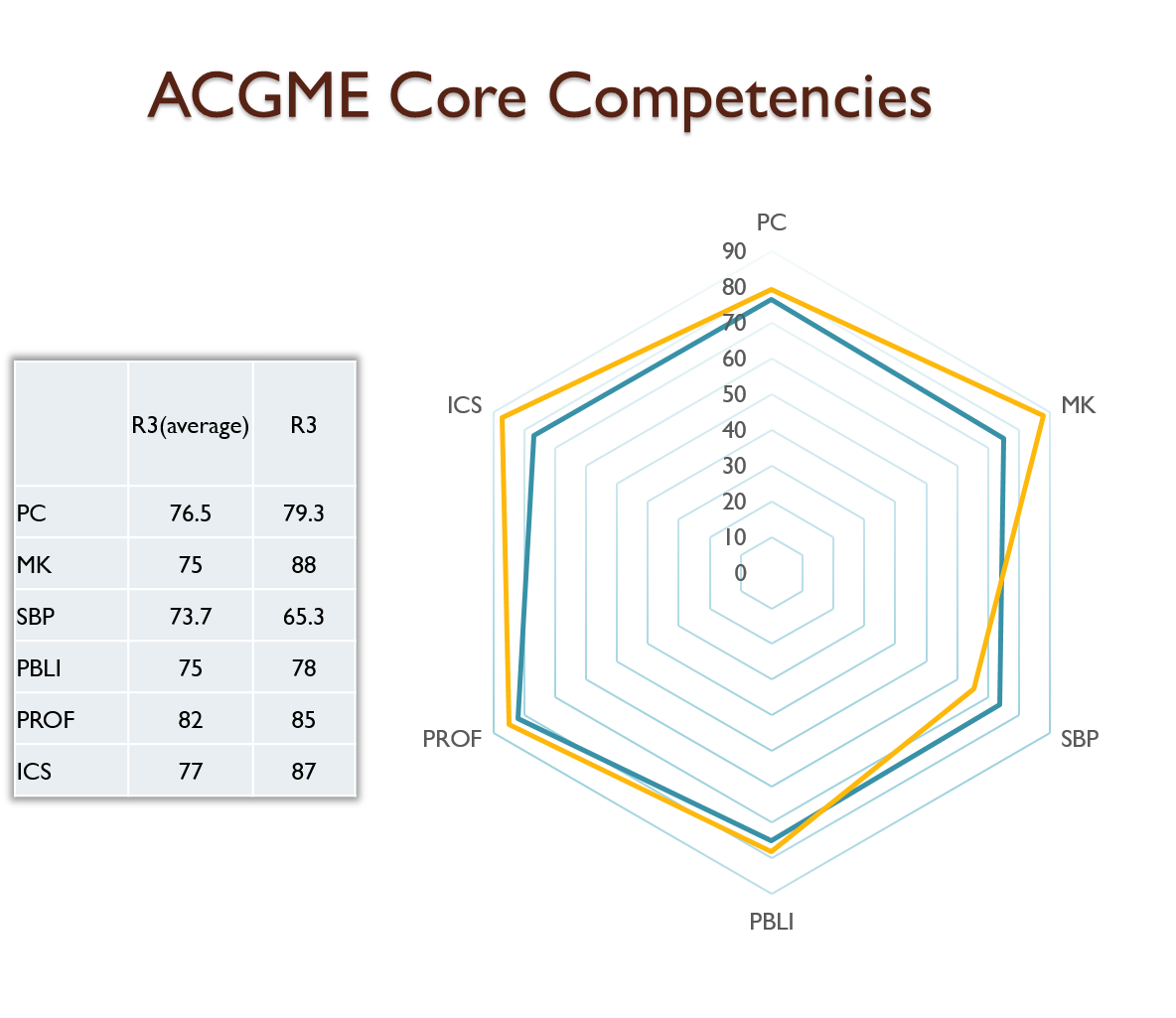
CRM skills are progressive abilities, and simulation is a useful modality for tracking their development. Our study supports the use of CRM ability in individual learners over the course of residency training n EM.
Simulation is a good assessment tool, not only in formative but also in summative evaluation. This may build a framework in simulation-based competency assessment in CRM for EM resident evaluation.

 Send Email
Send Email